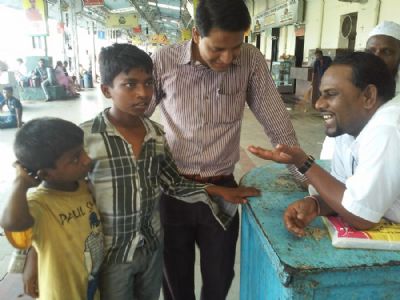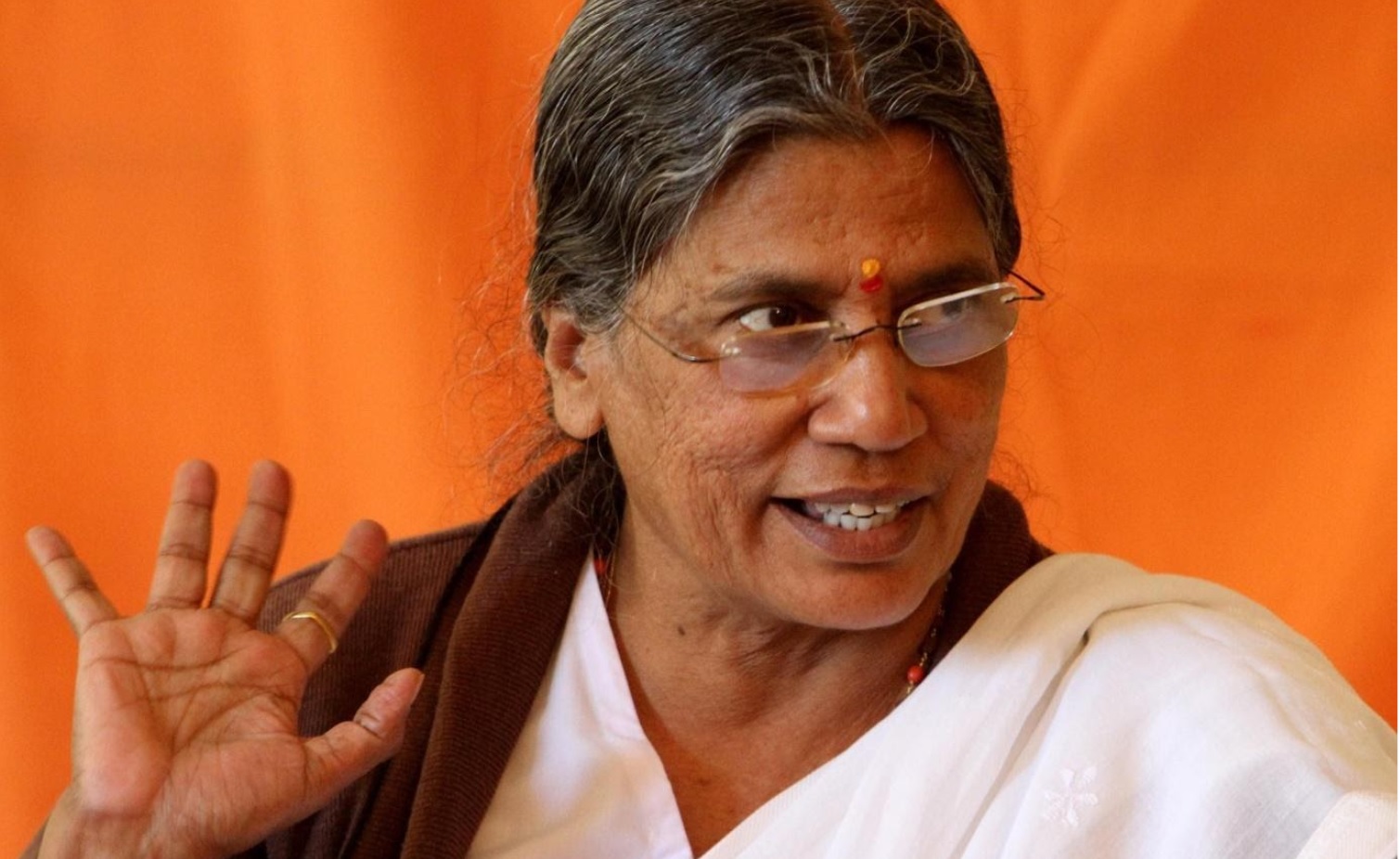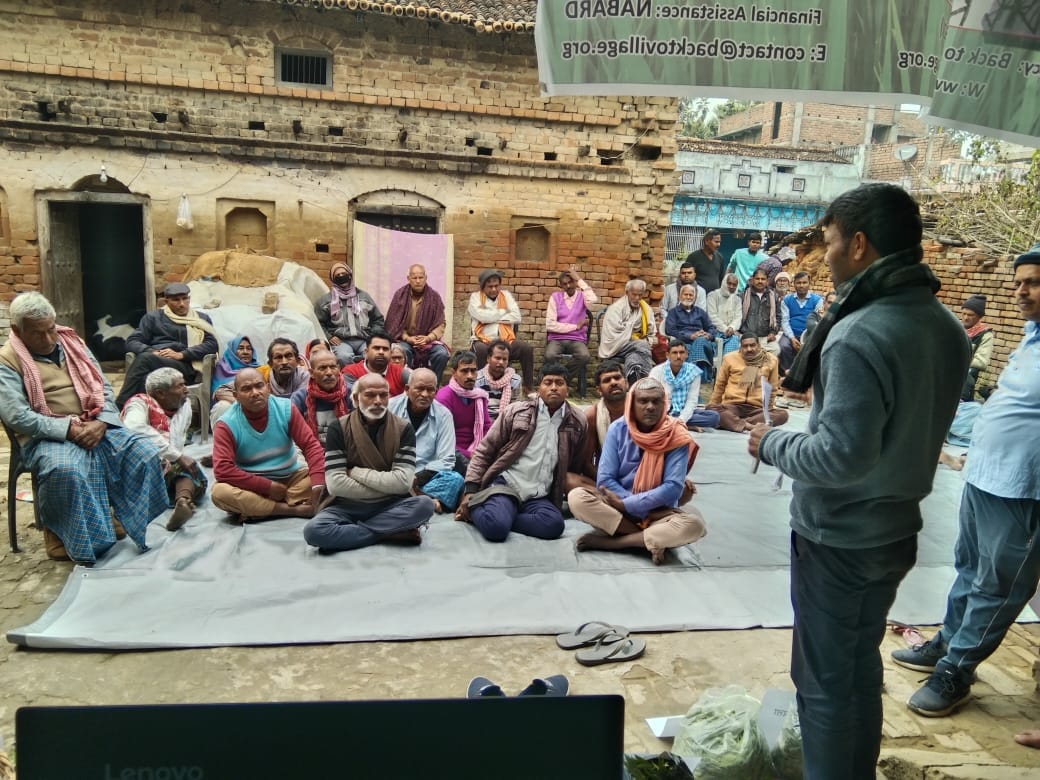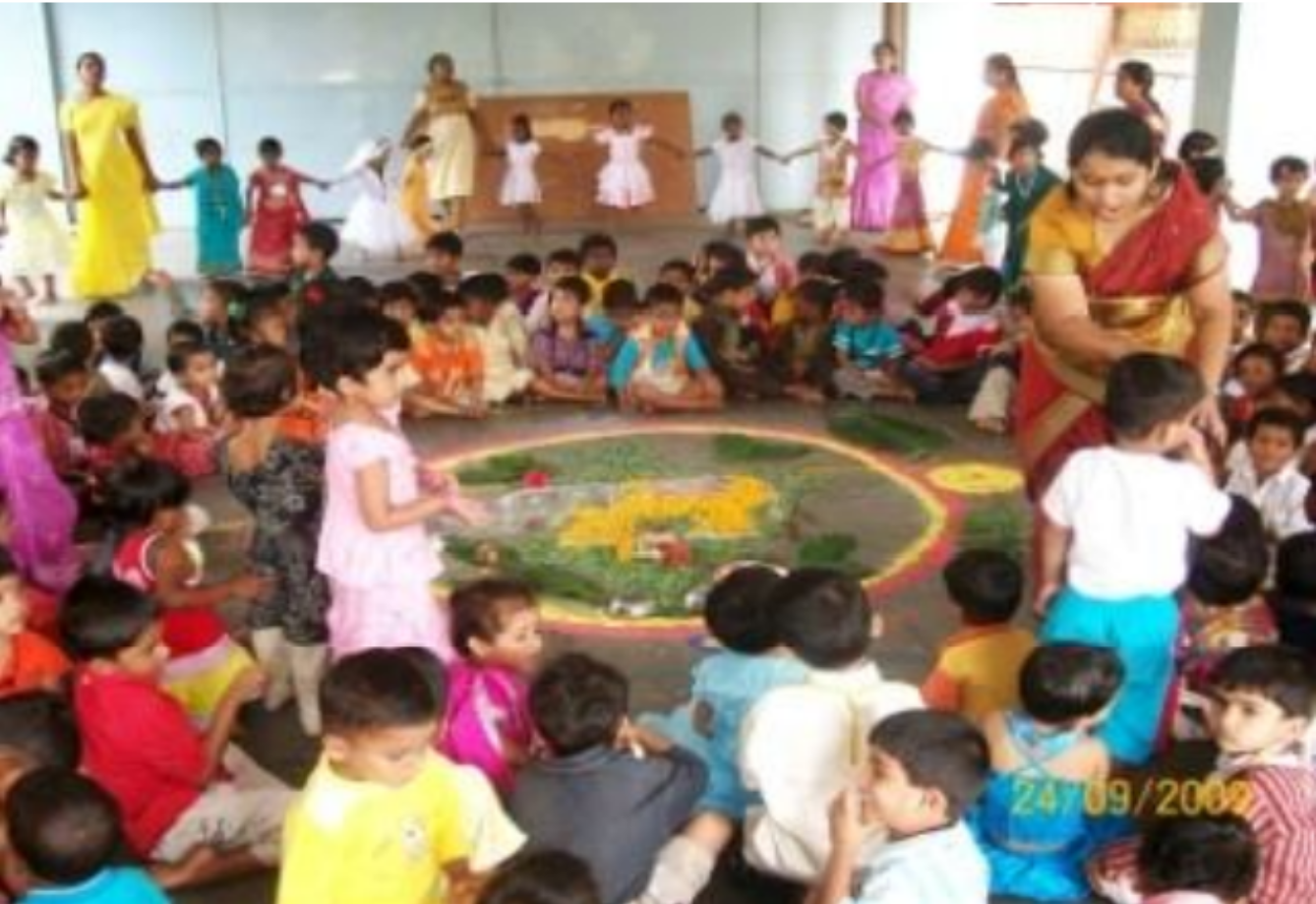Imagine the lively scene at an Indian train station with thousands of passengers, the loud signals of trains coming and going, the numerous vendors selling their stuff from chai to fruit salads and newspapers. In all of this hustle and bustle, we may miss the many children who have made this station their home. Yes, it is not uncommon for many runaway children in India to choose these railway stations as their home away from home. It may indeed be depressing to imagine the lives that these children may be living. But it’s not this staggering challenge that we are going to talk about today in this article but rather an inspiring person who felt enough for these children to do something about it.
We had the great opportunity to interview Vijay Jadhav, an inspiring social changemaker who started ‘Samatol’, an organization that works for the rehabilitation of runaway children. Samatol started in Mumbai 16 years ago working for the rehabilitation of street children and connecting them back to their families. While there might be hundreds and thousands of such children in stations in India, especially in cities like Mumbai, with the help of Samatol, we are told, over 15,000 children have been reunited back with their families. If you find that admirable, read on to know more about this social change-maker.
Childhood
Not everybody is born rich. But that is hardly the reason why one would not be able to contribute tangibly to society. Vijay Jadhav is a great example of this. He was born in Maharashtra, in a village close to where Chatrapati Shivaji grew up. Like much of rural India, his home lacked many of the amenities that most of us today take for granted. As a child he did not even have electricity in his home, leave alone internet, air conditioning, and other modern conveniences. But despite the lack of these amenities and many other challenges, he achieved a top rank throughout his education and was awarded numerous scholarships which allowed him to go for higher studies at a college near to his village. During his college years, he would travel 16 km every day on his bicycle to get to his classes. It was from his school and college days that he developed deep sensitivity for poor and especially the children, He was very moved by the plight of those less fortunate around him, which motivated him to pursue a diploma from Nirmala Niketan in social work and complete a degree from Ruia College.
Jadhav, told us that from a young age, he had seen runaway children at train stations and deeply empathized with them. He intended to use his education to bring about social change in the lives of these children. One day, he visited a nearby train station with a plan to understand their situation. He saw some children sitting by the train tracks by themselves, so he went up to one of them and started some light-hearted conversation. He learned that the child had run away in a fit of anger because his parents had not bought him a bicycle. Jadhav continued to talk to this child, connecting with him and eventually convincing him to return to his parents. This would become the beginning of a great mission that he would dedicate himself to.
Over the years, he expanded this work with additional volunteers and a more formalized process for helping these children, including vocational training, youth shelters, and the involvement of police and health authorities. He said he found out that parents were most of the time ecstatic to see their children return home. Many times it was just due to an unfortunate miscommunication or some altercation or small fight in the spurt of a moment that children often ran away in the first place. That was the moment when he realized how impactful his work could be.
During the initial stages, there were many people who judged him harshly and some even thought the worst of his intentions. Jadhav, however, continued to build his reputation through his commitment and character.
A look behind the curtain
It’s not as easy as it sounds though. Many of the runaway kids will not even talk or make eye contact with a volunteer. So the volunteers are taught to be patient and show genuine and unconditional affection towards these children. Jadhav tells us that it was initially hard for him too to fully understand their mindset but over the past 16 years he has learnt a lot and is now able to understand them well. He said that he has realized, through his own experience and mistakes, that every child is different and the same type of treatment does not necessarily work for all of them.
He told us that, for example, runaway children who are 16 years or older are less likely to go back home. Samatol gives them the facility to attend vocational training camps and receive employment training that will better prepare them for adulthood. From yoga and sports, to computer literacy and farming techniques, to family values and wholesome well-being, the camps are designed to help transform the children into good citizens. Some kids may have picked up violent tendencies from their families or while living alone; other kids are naïve in the world and do not know how to survive and live on their own. Often, these children get addicted to cigarettes, tobacco or alcohol and pick up bad habits such as stealing. They are sometimes abused and taken advantage of by anti-social elements. The camps that Samatol runs try to instill life skills within them.
“Why do children run away?” we ask. “Because of various reasons” he replies. The majority of runaway kids who are between 12-16 years old, are faced with family issues such as poverty, mental illnesses, and fights with family members- both verbal and physical. However, even if they seek to escape these difficulties by running away, many of them deeply miss their families.
Jadhav told us that this past year has not been a normal year and the pandemic has brought its own challenges: due to the pandemic, schools have been shut down, restaurants have been temporarily closed. There has been a deep psychological impact of the pandemic on children in ways that we do not necessarily understand. At the same time trains have stopped running and many stations are not operating. This has meant that the runaway children, who would have otherwise lived in train stations, have found other, possibly more vulnerable hiding spots that are unknown to volunteers or authorities. Samatol is trying to meet this challenge.
What does the future hold?
Jadhav told us that it is the generations to come that will both inherit the problems and will also shape the world through their solutions. It will be up to them to solve many of the world’s problems we are facing today- poverty, environmental degradation, and many more. So he believes that it is important to give the younger generation a strong foundation, so they can collectively have what it takes to tackle these problems. Whether it is through value based education that teaches compassion and social service or a set of skills to be successful in the world of tomorrow, Samatol is trying to equip the most under-privileged children for a better tomorrow. He asserts that every child around us has capacity to grow, and each of us has a role to play in it.
Vijay Jadhav dreams of a world where every country strives to create a ‘Bal Premi Samaj’, (a child loving society) – every neighborhood, city, and country focuses on supporting its children and provides the resources they need to fulfill their potential and help them achieve their hopes and dreams. He believes that Samatol is doing its bit to achieve this dream. All that the child requires is a push, they have enormous potential, he told us, reverberating the famous lines of Swami Vivekananda “Each soul is potentially divine”.
(This article is based on the research and interview conducted by three Indian-American high-schoolers as part of the Dharma Internship Program 2020. The authors acknowledge the valuable suggestions and help from their mentors and program coordinator)

Yukta Kulkarni
Yukta is a high school senior from Florida. She likes playing soccer, reading, and chemistry

Nikhil Roy
Nikhil is a freshman at University of Pittsburgh. He wishes to pursue Data Science, utilizing Statistical methods and Computer Science.







